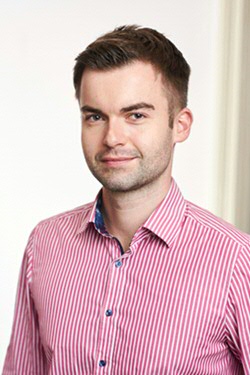Prof. Björn Hoops receives NWO-XS grant to study energy communities

Björn Hoops, professor of Private Law and Sustainability at the Faculty of Law, recently received a grant from the NWO SSH Open Competition XS program. Hoops received the grant for his research on private law obstacles to the flourishing of energy communities and other small-scale energy projects, titled ‘De-Scaling Private Law to Help Energy Communities Thrive’.
Competition energy communities hindered
Energy communities produce renewable energy on a small scale and can drive the energy transition better than large energy companies. However, it is difficult for them to compete because energy markets encourage growth and economies of scale. The law creates further obstacles, also by imposing higher costs on small-scale companies than on large-scale companies for each unit of output.
While this problem has been recognized and addressed in public law, it has been largely ignored in private law. Hoops' project aims to develop and test a methodology to identify private law obstacles to small-scale energy projects and to develop legal tools to remove them. The project will begin on 1 February 2025, and will continue for a year.
NWO SSH Open Competition XS program
The NWO SSH Open Competition XS program selects proposals for curiosity-driven, fundamental research in the field of Social Sciences and Humanities (SSH). The grant consists of €50,000.
| Last modified: | 31 October 2024 4.21 p.m. |
More news
-
05 March 2025
Women in Science
The UG celebrates International Women’s Day with a special photo series: Women in Science.
-
04 February 2025
'To entice is okay, to mislead is not'
In the supermarket, there is a carton of ‘blackcurrant juice’. At least, that is what it is called and what the picture on the packaging suggests. The list of ingredients, however, states that the contents are mainly made of apples and grapes. Is...
-
23 January 2025
Two UG researchers join The Young Academy
Prof. Björn Hoops and Dr Esther Metting are joining The Young Academy (De Jonge Akademie, DJA) of the Royal Netherlands Academy of Arts and Sciences (Koningklijke Nederlandse Akademie van Wetenschappen, KNAW). Every year, the DJA selects 10 talented...
